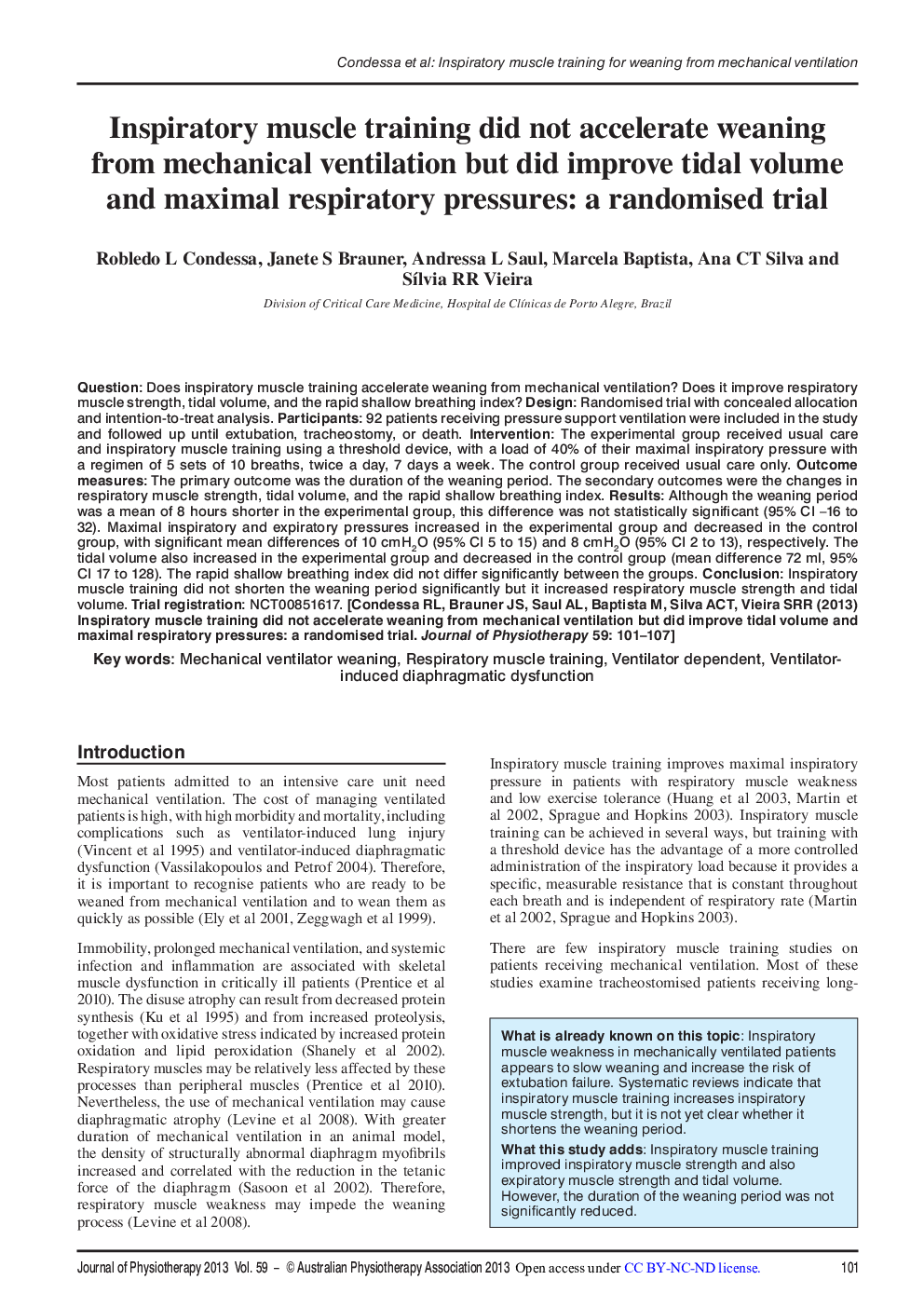| Article ID | Journal | Published Year | Pages | File Type |
|---|---|---|---|---|
| 5864123 | Journal of Physiotherapy | 2013 | 7 Pages |
QuestionDoes inspiratory muscle training accelerate weaning from mechanical ventilation? Does it improve respiratory muscle strength, tidal volume, and the rapid shallow breathing index?DesignRandomised trial with concealed allocation and intention-to-treat analysis.Participants92 patients receiving pressure support ventilation were included in the study and followed up until extubation, tracheostomy, or death.InterventionThe experimental group received usual care and inspiratory muscle training using a threshold device, with a load of 40% of their maximal inspiratory pressure with a regimen of 5 sets of 10 breaths, twice a day, 7 days a week. The control group received usual care only.Outcome measuresThe primary outcome was the duration of the weaning period. The secondary outcomes were the changes in respiratory muscle strength, tidal volume, and the rapid shallow breathing index.ResultsAlthough the weaning period was a mean of 8 hours shorter in the experimental group, this difference was not statistically significant (95% CI -16 to 32). Maximal inspiratory and expiratory pressures increased in the experimental group and decreased in the control group, with significant mean differences of 10Â cmH2O (95% CI 5 to 15) and 8Â cmH2O (95% CI 2 to 13), respectively. The tidal volume also increased in the experimental group and decreased in the control group (mean difference 72 ml, 95% CI 17 to 128). The rapid shallow breathing index did not differ significantly between the groups.ConclusionInspiratory muscle training did not shorten the weaning period significantly but it increased respiratory muscle strength and tidal volume.
